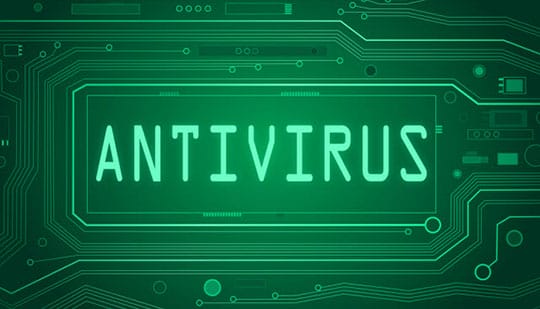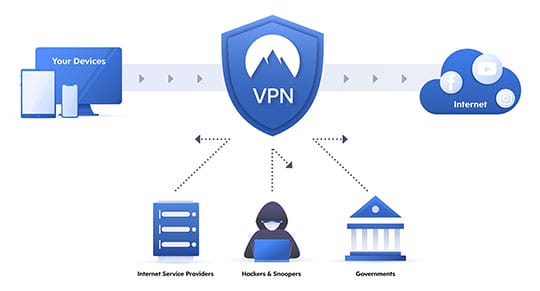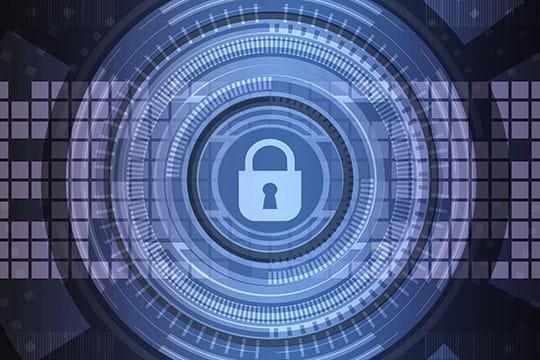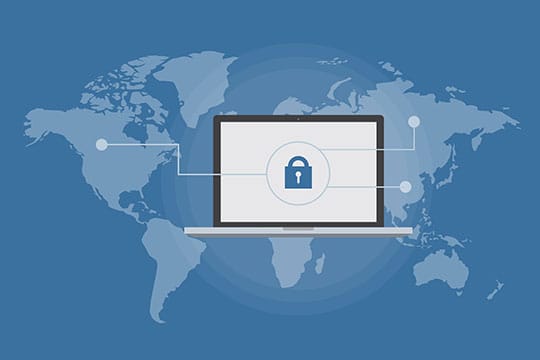There is more concern than ever before amongst the public about security and privacy online. It isn’t hard to see why there are so many worries in this regard. There have been many high-profile data breaches reported recently. The media is always full of stories about identity theft, phishing scams, and ransomware attacks. It’s no surprise, then, that over 50% of internet users around the world have more concerns about their online safety than they did just a year ago. More than 80% of people who regularly go online believe cybercriminals are causing them to be wary of browsing the web and using online services.
Unfortunately, individuals are justified in their worries about whether their personally identifiable data is leaking out onto the dark web. When cybercriminals have sufficient pieces of information about any given individual, they can reconstruct their online identity in its entirety and this raises a host of issues.
It’s well known that the internet can be dangerous. There are countless threats, including viruses, scammers, and hackers, and they endanger home users and large corporations alike. There are countless online scams, so it’s never been more important to find ways of staying safe when browsing. It’s no wonder, then, that VPNs (or virtual private networks) and antivirus software packages have become popular ways of protecting devices from potential risks.
However, how does a VPN or antivirus program work? What are they protecting you from? In which ways are they different and how can they combat online dangers? Most importantly, how do you choose which one you need to protect your privacy, online activity, and data?
Which online threats do we face?

There are digital dangers everywhere these days. Malware (or malicious software) is a common problem. This is an umbrella term that is used to describe any type of harmful software such as viruses, spyware, and adware.
Most people have heard of common viruses such as trojans, worms, and boot sector viruses. Trojans may appear to be useful apps, but they have viruses hidden away inside them. Worms are destructive programs that will infect several devices through self-replication. Meanwhile, boot sector viruses are contained in CD-ROMs and other external storage devices. While these are rarer now that we tend to use cloud storage facilities these days. But, they still exist and could infect your device.
When a virus attacks and infects a device, it may erase files, destroy hardware, or slow down processing. Yet malware represents just one internet threat. You can find digital threats everywhere. They come in many sizes and shapes.
Some other common problems include:
- DNS attacks.
- Data harvesting and surveillance.
- Identity theft and hacking.
- Restricted content access.
- Phishing scams.
- Spam.
- Penalties for accessing restricted or blocked content.
Yet, there’s no need to worry unduly since both VPNs and antivirus software can help to protect you from almost all cyber threats found online today.
Both VPNs and antivirus software protect devices in their own way, and both have their own weaknesses and strengths.
How does AV software protect devices?

When any program, email, website, app, or file is opened on a device, a new code is introduced to the processor. This holds the risk of infection with malware. However, antivirus software can help to protect the system. It scans the device continuously for signs of danger. It will compare the programs that are running to known malware types to check for suspicious codes which can then be isolated and the threat removed. Sadly, malware becomes increasingly sophisticated each day. Therefore, AV solutions must be constantly evolving to identify all of the latest threats.
AV software bears primary responsibility for keeping devices infection-free. Modern cybercriminals are always working on new approaches to getting their hands on your data and your money. For example, banking trojans have now can lift financial details. Whereas keylogging spyware surreptitiously surveys your keystrokes then uses that data to steal your passwords and data. There is even a brand-new malware category “cryptojackers”. It can hijack your device remotely and use its computing power for its own purpose.
Having the best anti-malware tool is key to guarding devices and protecting them from the ever-changing cyberthreat landscape. With the right AV software, a single mistaken click or wrongly downloaded file won’t spell complete disaster.
How do VPNs secure personal data and internet traffic?

If you think of AV software as Armor for your device, a VPN acts as camouflage. AV software covers devices, but it’s also important to consider the data that travels between the network and the device itself.
Although public networks that offer free Wi-Fi are incredibly convenient, they can, unfortunately, be a target for cybercriminal activity simply because they can be accessed quickly and easily. For example, packet sniffers are benign tools to help network administrators troubleshoot problems. But in criminal hands, they can be used easily to monitor wireless network traffic. Cybercriminals can also use their technical skills to compromise routers through “man-in-the-middle” attacks. This allows them to commandeer a router and use it to see and copy the traffic that travels between devices and the network that is now under their control.
Even on your home Wi-Fi network, you can’t necessarily rely on the protection of your internet service provider. They could be watching your traffic and selling on your personal data without you even knowing about it. When you have a VPN in place to protect your connection, all your data, from instant messages and social media usage to your website login information will be fully encrypted. This means that even when cybercriminals are able to see your traffic, they can’t read it, understand it, or use it against you. If you regularly pay bills, shop, or check your account balance online, you should consider an encrypted connection absolutely essential. Without one, you shouldn’t ever use sensitive information of this nature on a public network and you should even think twice before using it on your own home Wi-Fi.
How good VPN works?

Good VPNs allow users to anonymously surf the web since the device is connected to a private secure server and the true IP address is concealed. As a result, it’s possible to access sites that have been banned, use restricted services, and watch geo-blocked television content without having to worry about your data or identity being compromised.
VPNs utilize a process called tunneling to encrypt and encapsulate data. Encapsulating hides the data while encrypting it ensures it is unreadable. The best VPNs also use extra high-end security methods to guard against tracking, like automatic kill switches that cut the internet connection off completely if the VPN server disconnects – something that could result in tracking.
There is a catch, though. A VPN won’t necessarily protect the device from malware and viruses. The top VPNs offer inbuilt malware protection, but that protection remains incomplete. VPN malware protection is designed to be preventative and to block any potentially harmful programs from attacking the device. However, it isn’t going to be as effective when compared to a dedicated antivirus program when spotting and combating existing viruses.
Which is best, a VPN or Antivirus software?

When it comes down to deciding whether to use a VPN or antivirus software to protect yourself when going online, the reality is that each option offers its own benefits. AV software will protect you most effectively from certain online threats, meanwhile, VPNs are more effective at protecting from others. It’s a fact that both have been designed to work in combination with each other rather than in competition with each other.
Here is an overview of what each tool can do best:
VPNs:
- It can prevent your online activities from being tracked.
- VPN gives you safe access to internet content that is restricted.
- It makes you anonymous when torrenting or browsing.
- VPN allows you to permanently delete the data from each internet session.
Antivirus software:
- Prevents your device from being invaded by malware, adware, and viruses.
- Removes existing viruses from your device.
- Identifies dangerous Phishing emails.
It’s clear that you should not be choosing whether to have a VPN or antivirus protection. Rather, you should make sure you have both. By combining a high-quality VPN and a high-quality antivirus program you’ll have almost 100% protection from all online threats.
Should I use a VPN or Antivirus software?

When weighing up the pros and cons, it’s true that AV software will excel at offering protection from some online threats, but VPNs excel at offering protection from others. They should work together rather than compete. So, which should you have for your device?
The ultimate solution is to opt for an antivirus with a VPN included. You shouldn’t choose either a VPN or an antivirus software package. Instead, you should make sure that you are using both. When you combine a quality AV program with a reliable VPN, you can have virtually 100% protection for your device from all online threats. It, therefore, makes sense to look for a single solution that brings both of these features together into one effective option.





